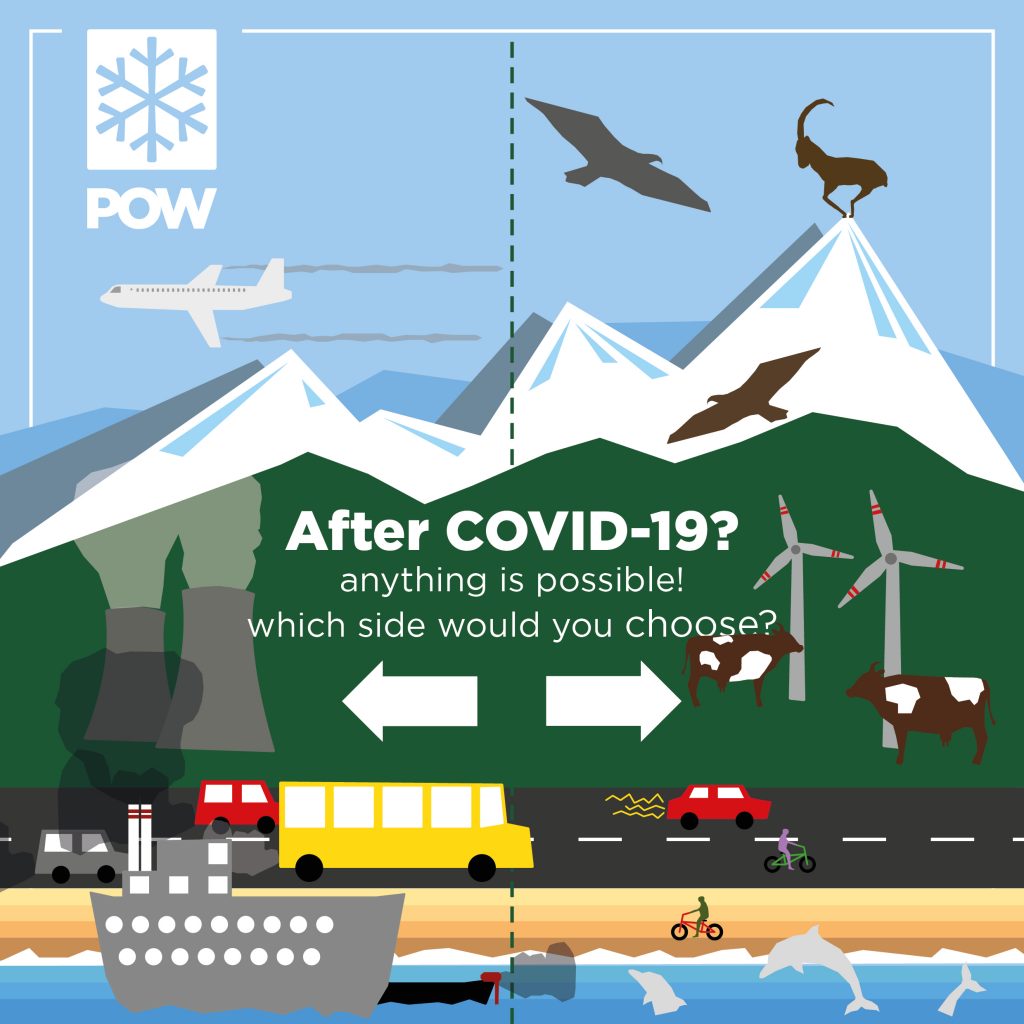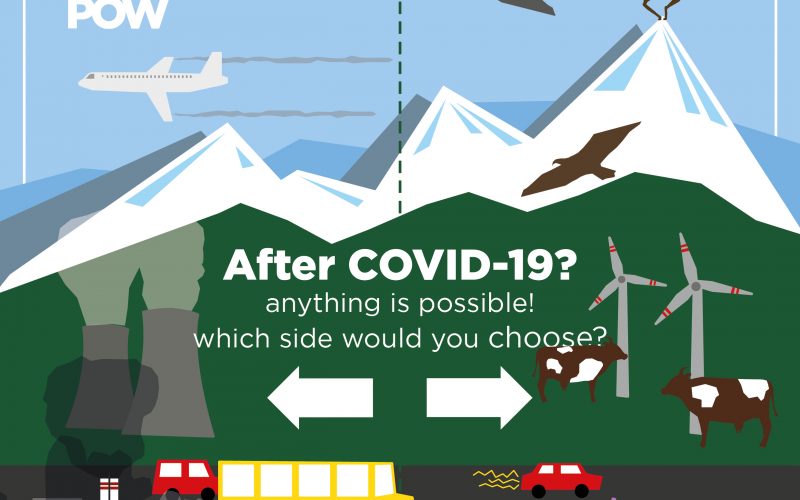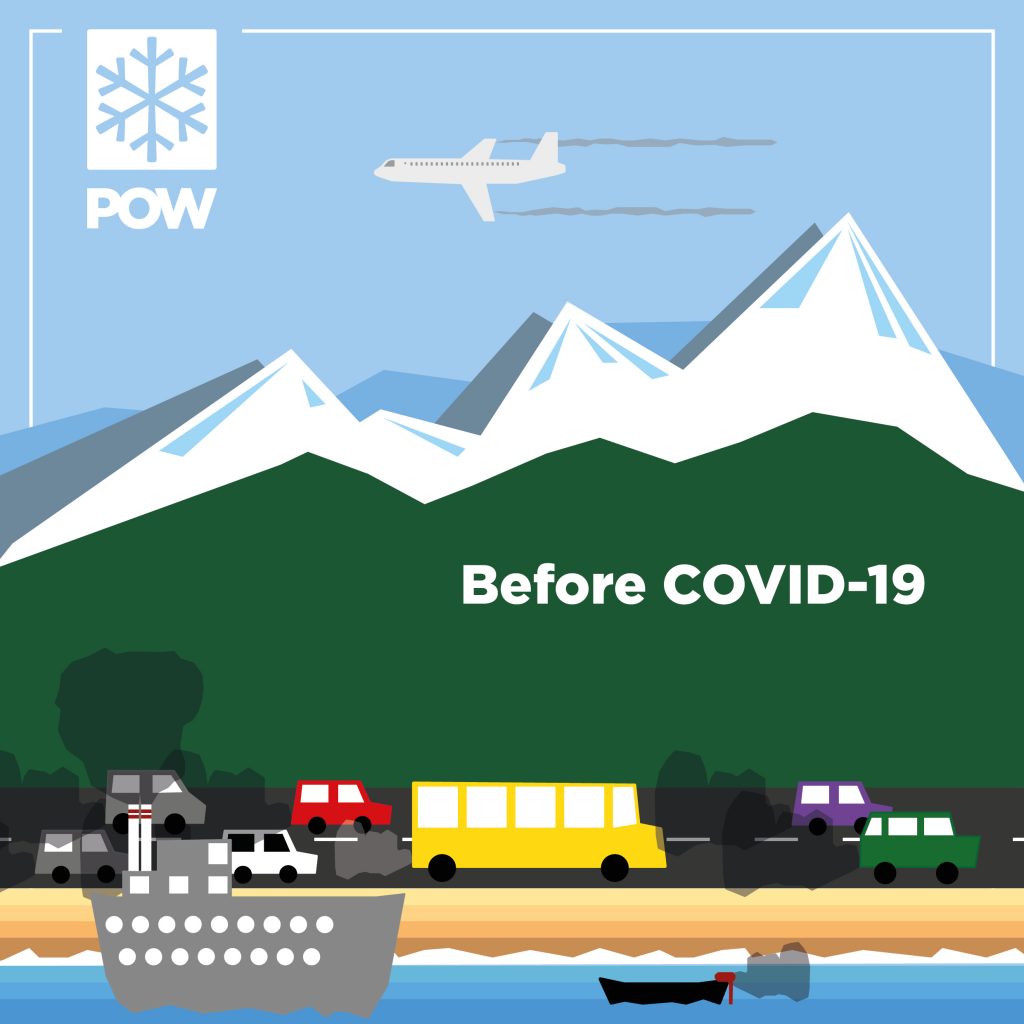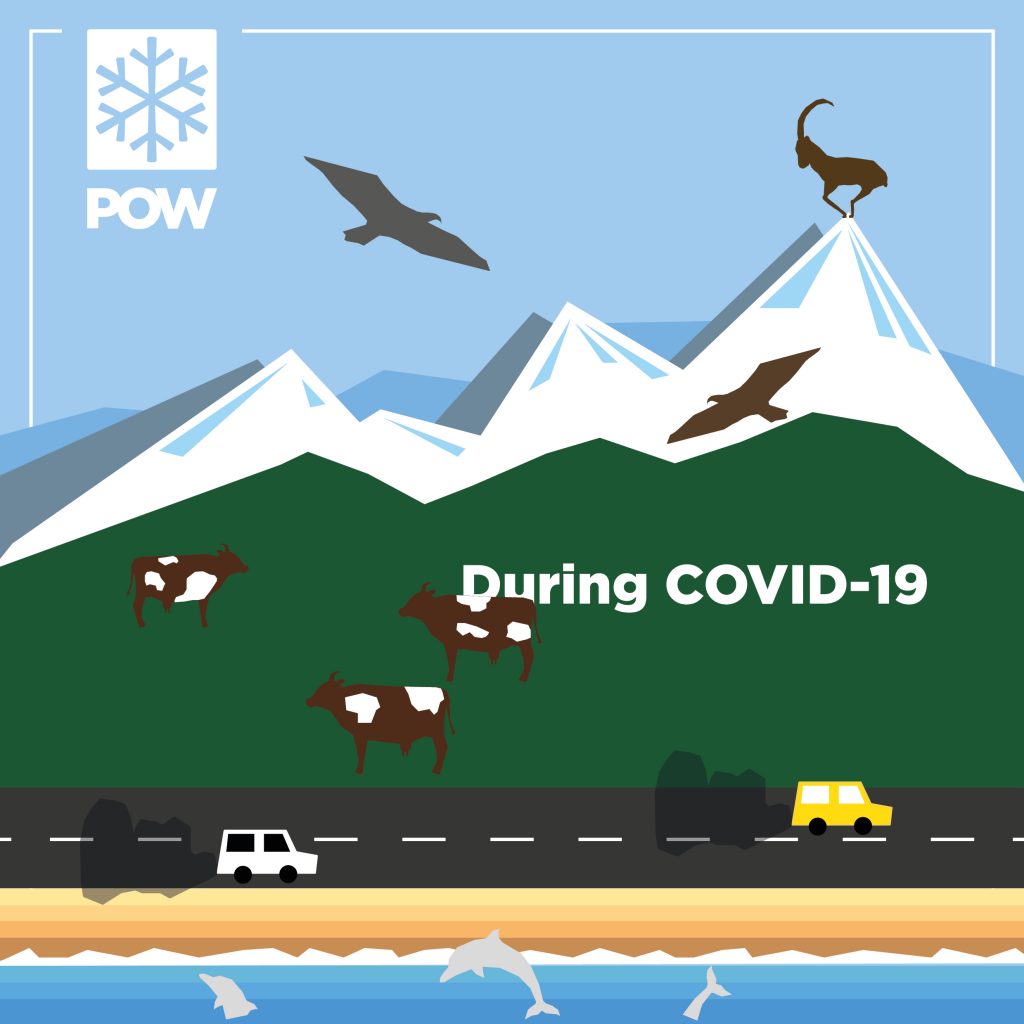Corona virus: a sudden break for all of us – even for the climate!
by Anna Siebenbrunner

Who would have expected everything that is going on in this world right now at the beginning of 2020? The corona virus seemed to be far away, far away from endangering Europe and other continents but Asia. Now reality hit us bad. The number of infected persons continues to rise throughout Europe, and along with the infections also the number of deaths. It looks like it had to take on such a dramatic scale, in order for people to realize how serious this pandemic is, how important it is to follow the instructions, to slow the further spread of the virus.
The COVID-19 pandemic has definitely changed our lives already. People are asked to stay at home, to reduce their social contacts, to limit their lives to a minimum. grocery stores, pharmacies, banks and other so-called critical infrastructure are still allowed to remain open, everything else is shut down. All these measures lead to a change in people’s behaviour, and thus will also have an impact on the economy. People meet up less, people consume less, people travel less. The economy groans, fearing massive losses.
We have seen many parallels already being drawn between this crisis and the climate crisis but there are clear differences too. The transition to a climate friendly world we envision is one of new jobs, opportunities and better health, not one of recession, hardship and health problems. Even if it seems bizarre in these hard times, there are many lessons the COVID-19 pandemic can teach us – not only concerning medical or political issues. Since the spread of the virus in China, the country’s greenhouse emissions are decreasing; it’s greenhouse gas emissions, for example, have decreased by 25 % in February and last week according to NASA the skies have been clear for the first time since 2008.
COVID-19 can be a chance for the environment to recover from the emissions of the last years. The CO2-emissions are already declining in many countries. The wonderful news is that nature is able to regenerate fast. Another positive example comes from Italy: dolphins are again swimming closer to the coast and canals in Venice clear up as there are less boats circulating the waters. These are just some examples of positive effects on nature and climate – and we are looking forward to reporting many more such examples in the future. However, the positive effects of the corona virus and, respectively, the measures that go along with it, will neither be able to stop global warming nor to substantially reduce CO2-emissions. Also, the diminishing number of flights is just a breathing spell for the climate. In order to reach the Paris Agreement goals, long-term measures are still required.
Again, this is a huge catastrophe to an extent living generations haven’t seen before. But at the same time, it implies a huge chance, the chance to take part in an experiment. This is a chance to slow down our stressed and globalized world. It takes the speed out of our daily routine. We are lucky to live in the 21st century, in a century where digitalization is reality, where it’s possible to livestream lectures from universities, to telework and to attend teleconferences whilst staying at home and – maybe most importantly – to stay in touch with our beloved ones during this time of self-isolation.
Being forced to stay at home, we have a lot of time to think. Maybe we should think about our habits, about the impact we have on the environment and climate. Maybe we should think about whether it is really necessary to buy products from far away (that have a high carbon footprint) when regional ones would also be sufficient, or whether it is necessary to travel to far-away-countries several times a year (whether it is for work or pleasure). Maybe we should simply think about how we can change our habits. After being released from our own four walls, even ‘traveling‘ to the other end of the hometown might feel like a journey to a foreign place we have been wanting to travel to for so long – paradise does not always have to be tropical! Our own country – even our backyard – has still so many amazing spots to discover #backyardadventures !
People who read this article most likely belong to the privileged part of the society – including ‘us‘. The part that can usually decide and afford to travel. Now we cannot. But we will again in the future. This means that we can have an impact on humankind’s carbon footprint. We can decide where we travel to, how we travel and, of course, how often we travel. We have the power to make a change.
The times we are going through are hard. But if we all stick together as a society – by staying away from each other (!) – we will hopefully soon be able to leave the corona crisis behind. After rain comes sunshine. After the corona crisis comes normality. But let’s try to learn our lessons from this crisis, let’s shape normality to a form that is more environmentally friendly!
Sources:
- Spiegel online (https://www.spiegel.de/wissenschaft/mensch/co2-emissionen-in-china-sinken-ist-das-coronavirus-gut-fuers-klima-a-3bb248ba-5177-4a3a-abcb-9a67c7e1ad07 , March 15th, 2020)
- CNN (https://edition.cnn.com/2020/03/16/asia/china-pollution-coronavirus-hnk-intl/index.html , March 16th, 2020)
- VICE (https://www.vice.com/en_ca/article/bvg39q/chinas-air-quality-is-about-to-get-a-whole-lot-worse-because-of-coronavirus , March 16th, 2020)
- BBC (https://www.bbc.com/news/av/world-europe-51943104/coronavirus-venice-canals-clearer-after-lockdown , March 18th 2020)
- IFL Science (https://www.iflscience.com/environment/fish-and-dolphins-return-to-the-waters-of-italy-after-the-covid19-quarantine-measures/ , March 18th 2020)



